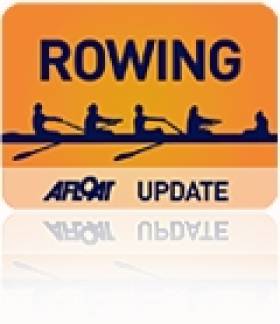Displaying items by tag: Robert LeGear
O'Brien's Bridge is Venue for First Head of River Race
Over one thousand rowers from clubs across the country, including crews from Northern Ireland, will gather at O'Brien's Bridge in Co. Clare for Rowing Ireland's first National Head of the River race of 2011 this weekend.
St Michael's Rowing Club, Limerick is hosting this weekend's competition, which is the first event of the 2011 rowing season, and is a national two blade event, that is, single sculls and coxless pairs.
The Head chairman Robert LeGear, said today, "We're delighted with the massive entry so early in the season. It's a sure sign of the interest and growth in club rowing. All we need now is fair weather for the event."
He added, "One hundred and twenty two boats will compete in the morning's Men's pairs and Women's single sculls, which get underway at 11.00 am. In the afternoon, one hundred and sixty six boats will compete in the Men's singles and Women's pairs which start at 2.00 pm.
The O'Brien's Bridge course is a favorite with rowers because of the calm stretch of water it offers. St Michaels have been running their own head of the river race here for over twenty eight years.
National Head of the River races are time trials with senior boats going off first and then working down through all the grades to under-fifteens. The race caters for men and women in singles and pairs at all levels, under 15, 16, 18, Novice, Intermediate and Senior.
Other boat categories will be on offer throughout the day in a rolling head time trial competition which gets underway at 9 am and runs until 4 pm.
The main National Head races take place at 11.00 am and 2 pm.
Click this link for Irish Rowing detailsClick this link for the Latest Rowing News
























































